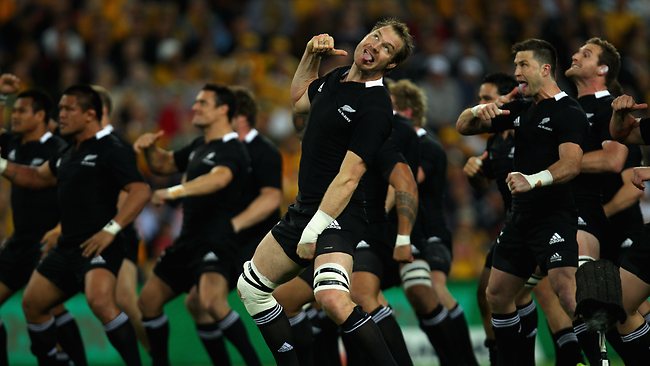War Dance Haka Text
- Haka February 2, 2018 A distinctly Kiwi wedding surprise: Wedding guests performed a haka, or traditional Maori war dance, moving the bride to tears and inspiring the happy couple to join in.
- Ever wondered what the All Blacks are saying during their pre-match cultural challenge? Here?s a translation of their world famous Ka Mate haka, performed at the Olympic Stadium in London vs.

The Haka (plural is the same as singular: haka) is a traditional ancestral war cry, dance, or challenge from the Maori people of New Zealand. It is a posture dance performed by a group, with vigorous movements and stamping of the feet with rhythmically shouted accompaniment.
Proud Maori soldiers who joined the army to fight for New Zealand at a time they were considered second-class citizens are pictured performing a powerful haka during WWII. Images show the Maori Battalion's C company performing during a ceremonial parade in Helwan, Egypt. They are seen presenting a haka for the King George II, the Queen, Prince Peter and Major General Freyberg.
War Dance Haka Text Song
The photo illustrates at time when the Maori had only recently been allowed to serve in the New Zealand armyByPublished: 21:17 BST, 1 June 2019 Updated: 21:33 BST, 1 June 2019. The photos illustrate a time when the Maori soldiers had been recently taken on as part of the New Zealand Army as part of the Second New Zealand Expeditionary Force. The four men in the foreground are, left to right; John Manuel, Maaka White, Te Kooti Reihana, and Rangi Henderson. Picture credit: Department of Internal Affairs, Alexander Turnbull LibraryIn combat, hakas were a way to intimidate the enemy by showing off the soldiers' strength and power.Historian Paul Moon at Auckland University of Technology told Daily Mail Australia that in some cases, a haka was used as a substitute for fighting.Today, hakas are generally performed as a sign of respect and are often presented at funerals, celebrations or sporting events.'
To have a haka performed for you is a real honour, and this would be their way of honouring the King,' Mr Moon said.The photo illustrates a time when Maori soldiers had only recently been taken on to the New Zealand army as part of the Second New Zealand Expeditionary Force. Men wielding taiaha to welcome members of the Maori Battalion on their return to New Zealand after World War II in 1945. From left to right: Sgt-Maj Anania Amohau, Tureiti (Tom) Rauhina (with the taiaha over his shoulder) and Turei Papuni. Pictured credit: Alexander Turnbull Library'The Maori population had grown, there was still a great deal of prejudice against Maori in the country, and for some, it was a chance to prove themselves. And they were committed, ideologically to opposing the Nazi regime,' Mr Moon said.When proposing the idea of a Maori unit, Sir Ngata was insistent that the force be led by Maori officers, not European command.Their participation in the war ultimately demonstrated to their peers, and the rest of the world, their powerful abilities.' It wasn't a noble thing, it was more, 'this is what we as Maori have to do to be recognised as equals in our country,' Mr Moon said.' Because of their status, people took it seriously and thought it would be a good idea.

So that's why the battalion was not just a token gesture. It completely dissolved any doubts that people had on them. A Maori kapa haka group performs a haka in front of the whare runanga (meeting house) at Putiki Pa, Wanganui. Photograph taken circa 1918, by Frank J Denton, possibly on the occasion of the return of the Pioneer (Maori) Battalion from World War IThe photo, which appeared in a thread, received hundreds of reactions and responses from users, many of which had relatives who were Anzacs at the time.Some users shared tales of the Maori soldiers, exemplifying their impressive and powerful presence on the battlefield.' The elite German paratroopers were terrified of the ANZACs specifically because the Maori battalion would take ears as trophies (whether the German who owned them was alive or not),' one said.
War Dance Haka Text Meaning
ShareOne argued that the Maori motivation to join the army may not have worked out as they hoped as the battalion they continued to be disenfranchised.'